#queue tips
Explore tagged Tumblr posts
Text
Little life update:
I, an autistic person, have seen the benefits that structure has on my life (shocking no one). Thus, since I’ve recovered from burnout, I’m now trying to create a routine/system that will give me the structure I need on bad days and direction on good ones.
The problem is the process of creating the structure needs structure to structure the structure I’m creating. Thus creating a formless blob of ideas that I’m trying to manipulate into something functional.
I’m slowly but surely getting there, but when I’m having bad days like today, it’s pretty annoying and frustrating
8 notes
·
View notes
Text



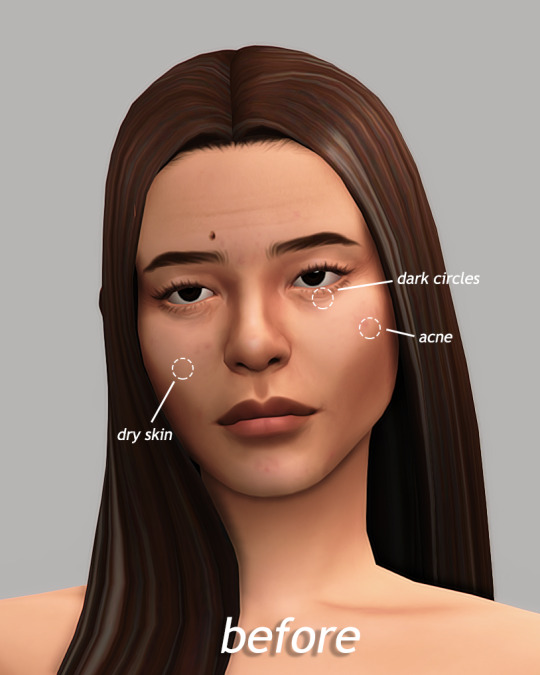
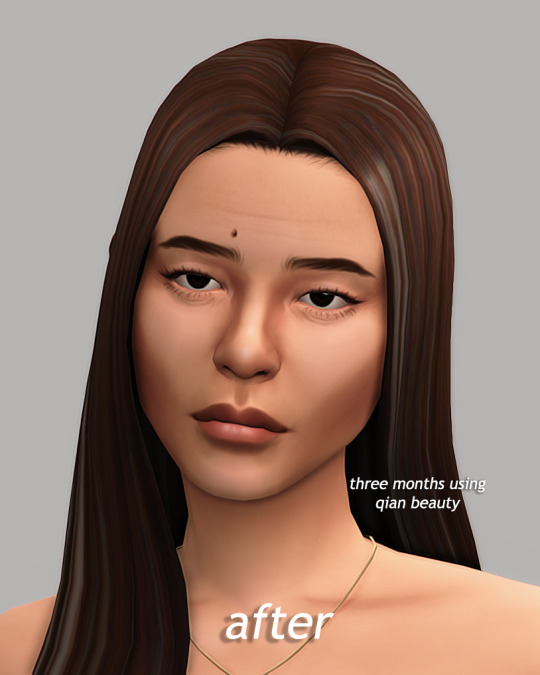
qian beauty just launched !
#ts4#s#*soju save#*chu hua gen#bitches be like “im behind on my queue !” “with the side quest!!!”#the way this is only the tip of the iceberg of what is planned for this sorry yall brainrot set in
2K notes
·
View notes
Text
(it thinks this deserves its own post, was a response in this thread)
setting up tasks that can't be won gets old fast for obedient subs. we want to be obedient. we want to be good. if you suddenly switch up the dynamics to make us fail, you're pulling the rug out from under us. complaints about unfairness would be warranted, and it will damage the trust we have in you if you pull this too often. we'll go from wanting to obedient to giving up trying, because you clearly don't care if we're good if you make it so we can't be. you might get shock, but we'll also feel betrayed.
if you want to punish us arbitrarily, make it a challenge! tell us you want us to take a punishment, you want to see how well we can handle it. put our pride as an obedient sub on the line. treat punishment as a task we can complete rather than a punishment.
you could even make it the reward for success! don't treat us like we're boring for always being good, but make the play you want to have the reward for completing our tasks properly. treat punishments as a treat and attention we get as a reward for being good.
you can even punish us to show us what will happen if we fail! a preemptive warning against being disobedient. maintenance spankings, difficult bondage time, things that underline that we are subservient to you. punished to make the point that you are in charge, not arbitrarily or random, but routinely as a message.
we won't change and won't stop wanting to be obedient. but treating that as anything other than a gift we are giving you is doing us a disservice and you don't deserve it if you can't appreciate it.
382 notes
·
View notes
Text
The lore of #asking for shark est to return to the sea trending worldwide --
So, William and Est are on a vacation in Phuket, getting a much deserved break and they had been sharing pictures and videos from the holiday. And normally when Est is on a vacation near sea, we get plenty of pictures of him in his "natural habitat".


However, William has been quite vocal about feeling possessive whenever Est posts shirtless pics. He had teased Est about it in their "My Ideal Fan" video.



Est also talked about how people are forgetting that he used to be a swimmer and that earlier he used to wear shirts with just two buttons buttoned up but now he wears t-shirts and does not show off anymore. He even posted his baby tee challenge on tiktok with the caption "(my) baby is possessive".
So, earlier this morning, William posted this picture where you could get only a glimpse of shirtless Est.

This prompted fans to start trending the hashtag asking Est to return to his natural habitat (i.e., indirectly asking William to let Est post shirtless pics). People basically started tweeting the hashtag with Est's previous shirtless vacation photos and asking for more.
William noticed the hashtag and tweeted this which encouraged Est to ask everyone to keep voicing out their opinion -

(william's tweet || est's tweet || translation)
It trended #1 in Thailand and #5 Worldwide (while trending in 6 countries) with over a 110k tweets. P'Mui (screenwriter and director of ThamePo), Parbdee (the production company that worked on ThamePo), ICONSIAM, various news outlets, etc. also joined in -




(translation 1 || translation 2 || translation 3 || icon siam's tweet)
It ended with Est finally posting his picture (after making a deal with William).


To which William replied -

#williamest#william jakrapatr#est supha#thamepo#thame po#thamepo heart that skips a beat#what a wild wild day#this is just the tip of the iceberg#this thing is far from over because est said he has added some posts in queue#but it's late here and i'm gonna go sleep now#will update this later if they do something unhinged again#postsbyrain
280 notes
·
View notes
Text

IM FREE FROM VACATION!! I can finally post things again, its a miracle.
Redraw of this
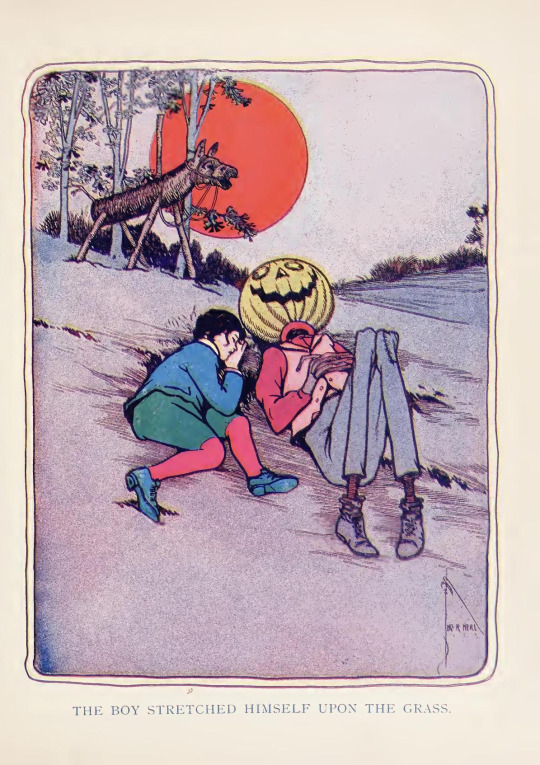
#I was at my grandmas and the internet was too poor to let me post anything. I drew some BANGERS too#I dont like posting too much at once so they're going in the queue#I drew this as a style study and also because Im obsessed with this specific picture. Its so sweet yet deeply unnatural and ominous#wizard of oz#the wizard of oz#oz books#the marvelous land of oz#wicked musical#wicked movie#oz tip#Tippetarius#jack pumpkinhead#princess ozma#ozma#The Wicked Land Of Oz au#redraw#art#fanart#digital art#This was also drawn for my fic one day you will be real...#im thinking about maybe having art for each chapter I think itd be a cute nod to the books
281 notes
·
View notes
Text








#criminal minds#aaron hotchner#investing in a queue#1x16 i love u tip touching ep.#user solardrops i hope u know i call this the tip touching ep bc of u. just stuck in my mind forever.#this ep is like catnip to robin hotchologys#age gap sibling issues. daddy issues in there too fuck it. gay hotch. bitch hotch. pulling stupid faces every 2 seconds.#biting.#bin.gif#bin.hotch
207 notes
·
View notes
Text
The "labor is entitled to everything it creates" leaving people's bodies when it comes to artistic works. like yes yes yes you think the artist is the bourgeois class and the real enemy is capitalism and also it's so interesting how so many self-proclaimed white leftists in fandom specifically are going after a field in which it is famously difficult to support yourself and which has stuff that they want for free, instead of like. finance.
#once again it's SO easy to clock people who are communists bc they want everyone to be provided for#vs people who are communist bc they're lazy/entitled/vengeful#bc you know. blaming capitalism is like. i mean yes. the artist still has to eat though. did you help with that#or are you the equivalent of one of those church people who instead of giving a tip gives a pamphlet just. for communism instead of jesus.#anyway there's a growing trend in this among the braindead internet shut in crowd. framing having a creative job as a privilege#like ohhhhhh suddenly going to work isn't the evils of capitalism if it's a job you wish you could have i guess. suddenly a job is Privileg#bc it's not about a right to be creative; it's about a right to be creative without having to answer to them.#it's about a right to write or draw or film what YOU want not what these losers want you to give them for nothing#queue
155 notes
·
View notes
Text
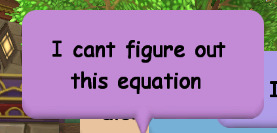

#wizard101#w101#moolinda queue#cursed commons messages#has alt text#tanya’s screenies#any tips for the alt text on that equation message would be appreciated lol i try my best
165 notes
·
View notes
Text

I got some messages that asked me to explain a bit more about scrying, and I wanted to make a separate post to clarify this method of divination from my main post on commonly used divination methods. So, let's dive in!
Scrying is a form of divination that involves gazing into a reflective surface or medium to receive insights, visions, or messages from the spiritual realm. It's a practice that has been used by various cultures and civilizations throughout history, dating back to ancient times.
1. Cultural and Historical Significance: Scrying has been practiced by cultures around the world for thousands of years. It has roots in ancient civilizations such as Egypt, Greece, Rome, and China, where it was used for divination, spiritual guidance, and accessing hidden knowledge.
2. Psychic Abilities: Some practitioners believe that scrying can help enhance psychic abilities such as clairvoyance (seeing visions), clairaudience (hearing messages), and clairsentience (feeling energies). By quieting the mind and opening oneself to the messages of the spiritual realm, practitioners may strengthen their intuitive faculties.
3. Modern Applications: While scrying has ancient origins, it continues to be practiced today by witches, psychics, and spiritual seekers around the world. Modern practitioners may incorporate scrying into their magical or spiritual practices, using it as a tool for guidance, insight, and personal growth.
⠈⠂⠄⠄⠂⠁⠁⠂⠄⠄⠂⠁⠁⠂⠄⠄⠂⠁⠁⠂⠄⠄⠂⠁⠁⠂⠄⠄⠂⠁⠁⠂⠄⠄⠂⠁⠁⠂⠄⠄⠂
Here are some key aspects of the practice of scrying:
⦿ Tools: Scrying can be performed using a variety of tools, including: -> Crystal balls: Smooth, polished spheres made of crystal or glass. -> Black mirrors: Mirrors with a dark, reflective surface, often made of obsidian or other black stones. -> Bowls of water: Still water in a dark-colored or reflective bowl.- Flame: Gazing into the flame of a candle or fire. ⦿ Preparation: Before scrying, it's important to prepare yourself and your space. This may involve cleansing and consecrating your scrying tool, setting a sacred space for your practice, and quieting your mind through meditation or relaxation techniques. ⦿ Technique: To scry, you fix your gaze on the surface of the scrying tool while allowing your mind to relax and enter a receptive state. You may begin to see images, symbols, or visions appear in the reflective surface. It's important to maintain a soft focus and an open mind, allowing the messages to come through naturally. ⦿ Interpretation: After a scrying session, it's helpful to journal your experiences and interpretations. Pay attention to any symbols, images, or feelings that came up during the session and reflect on their significance. Trust your intuition and the guidance you receive from the spiritual realm. ⦿ Types of Scrying: While the most common form of scrying involves gazing into a reflective surface, there are other variations of the practice as well. This includes water scrying (gazing into bodies of water), fire scrying (gazing into flames), and even scrying using smoke or clouds. ⦿ Uses: Scrying can be used for various purposes, including divination, receiving guidance or insights, connecting with spirit guides or ancestors, and accessing subconscious or hidden knowledge. It can also be used as a tool for personal and spiritual growth, meditation, and self-reflection.
4. Ethical Considerations: Like any form of divination, it's important for practitioners to approach scrying with respect, integrity, and ethical awareness. Practitioners should be mindful of the potential impact of their readings on themselves and others and strive to use their abilities responsibly and ethically.
5. Experimentation and Exploration: Scrying is a deeply personal practice, and there is no one "right" way to do it. Practitioners are encouraged to experiment with different scrying tools, techniques, and environments to find what works best for them. Trusting one's intuition and inner guidance is key to successful scrying.
Overall, scrying is a versatile and powerful practice that allows practitioners to tap into their intuition, connect with the spiritual realm, and gain valuable insights and guidance. It’s a deeply personal and intuitive practice that can be adapted and customized to suit individual preferences and needs.
Regular practice, combined with an open mind and heart, can lead to deeper insights, clearer visions, and a stronger intuitive connection with the spiritual realm. Additionally, seeking guidance from experienced practitioners, studying relevant literature, and participating in supportive communities can offer valuable support and encouragement on the scrying journey.
This is not a tool I regularly use, simply because of my headaches. Either it’s the mundane tapping into your head saying, “Hey, knock it off, you don’t need to do this.” or it’s the magical side saying “Hey, you have better places to put your time and energy. this is not one of them.” So if you are interested in this practice by all means utilize it to the best of your ability, but if you can’t seem to focus or get really bad headaches all the time, this may not be the BEST practice for you. It is an option, though! just be careful, witchlings!
Remember to approach scrying with a sense of curiosity, wonder, and reverence for the mysteries of the universe. Trust in your own intuition and the guidance you receive, and allow the magic of scrying to unfold in its own time. With dedication and perseverance, the practice of scrying can become a profound and transformative tool for spiritual growth and enlightenment.

⠈⠂⠄⠄⠂⠁⠁⠂⠄⠄⠂⠁⠁⠂⠄⠄⠂⠁⠁⠂⠄⠄⠂⠁⠁⠂⠄⠄⠂⠁⠁⠂⠄⠄⠂⠁⠁⠂⠄⠄⠂
Learn more: How to Scry Candle Wax in Water Tarot, Pendulums, Scrying, and More! Ways to Improve Psychic Gifts + Removing Mental Blockages Using A Witch's Mirror: Scrying, Automatic Writing, Spirit Work
#queue the magick#witchcraft#witch#witchblr#reference#magickkate#kitchen witch#sigils#green witch#witchy#modern witchcraft#witch aesthetic#witch community#baby witch#weather witch#cosmic witch#sea witch#witches#witchcore#baby witch tips#witchy vibes#beginner witch#witch blog#witch tips#scrying#divination#types of divination#scrying mirror
784 notes
·
View notes
Text
How to Write an Image Description: A Fundamental Guide.
[Plain Text: How to Write an Image Description: A Fundamental Guide. End PT]
General Guidelines:
[PT: General Guidelines. End PT]
Object, Action, Context
[PT: Object, action, context. End PT]
This is what you want to prioritize. What are we looking at, what is going on, and what is the surrounding environment?
Keep it simple and get to the point
[PT: Keep it simple and get to the point.]
Try to use short, clear sentences and prioritize what the reader needs to know in the context of the post. We don't need to know that the tweet was posted at 2:08AM or what color rings someone is wearing. That doesn't really provide useful information. If you really want to provide some relevant details, be sure you get to the main point of the image first.
Context is Important
[PT: Context is Important. End PT]
Why is the image posted there? What information does it lend to the content around it? Make sure the viewer knows what they need to know to understand how the image relates to the text and content partnered with it.
For a meme or a tweet screenshot, we don't need to know all the details or what the background looks like, we just need to understand the joke. For something like art or photography, you may want to include more details.
Don't Assume
[PT: Don't Assume. End PT]
Don't assume gender, race, and pronouns of the subject(s) of the image. If you can find this context in the post, on op's blog, or somewhere else you can include it, but try not to make baseless assumptions.
Alt Text vs Image Descriptions
[PT: Alt Text vs Image Descriptions. End PT]
Alt text is great for people using screen readers, but it isn't always the most accessible option. Alt text can be glitchy, the font size cannot be changed for those who need large text, and it doesn't show up at all until the image either loads or completely fails to load.
For this reason, a longer description in plain text in the body of the post is a more accessible option.
I suggest a short summary in the alt text so people can get the overview of an image and a longer description in the body of the post. For example, compare the image description and the alt text for the following image:

[Image ID: A guide to writing alt text on images. At the top, it says "Writing Alt Text" in big white text. It then lists off five major steps to writing alt text. Identify who, expression, description, color, and interesting features. It then shows an image of a capybara, with a sample alt text that reads, "A capybara looking relaxed in a hot spa. Yellow yuzu fruits are floating in the water, and one is balanced on top of the capybara's head." with each block of text color-coordinated to show which of the five steps it corresponds to. At the bottom of the image is the word "Puzzle" stylized into a logo. End ID.]
The Alt text provides the bare minimum of what you need to know to contextualize the image, while the ID expands on details that help to understand it and provides more details.
Formatting:
[PT: Formatting. End PT]
Try your best to use correct spelling and grammar, but transcribe accurately. Use clear language and concise sentences where possible. However: Don't censor words or correct spelling when transcribing something from the image. You want the description to be as accurate to the image as possible.
[PT: use correct spelling and grammar, but transcribe accurately. End PT]
Always use plain text. Never use formatting like bold, italics, other fonts/font sizes/text colors, or text in all caps. If they appear in the original image, transcribe it in plain text like this:
[Bold, underlined] Always use plain text. [End bold and underlines.]
Begin an ID with square brackets [[these]], followed by "ID:" or "Image:". End the description with "End ID" and a closed square bracket ] to signify the end of the descriptions.
Screenreaders and visually impaired people sometimes struggle with symbols and emojis. Transcribe these instead when possible!
[PT: Transcribe these instead when possible. End PT]
The image description should be directly after the image, before any post caption or commentary.
Never use a readmore! If you delete the post or change your url the description is gone forever. It also makes the ID harder to reach in general, which is not accessible.
[PT: Never use a readmore! End PT]
Make your post accessible from the start if you can. Don't post something without an ID then reblog it with a description so that people have a chance to spread the inaccessible version of the post if they "prefer" the one without the "clutter" of an ID. That's ableist. If you post something without a description then end up describing it later, edit the ID into the original post.
[PT: Make your post accessible from the start. End PT]
Resources:
[PT: Resources. End PT]
The People's Accessibility Discord Server: I will always suggest this server! It's full of people that can help write descriptions, give feedback on IDs you've written, answer questions about accessibility, and more!
Online OCR: Image(/PDF) to text converter! This is really helpful, especially for transcribing text in tweet screenshots, article excerpts, etc. You will still have to do a bit of work formatting and correcting things sometimes, but it's a really helpful tool
CaseConverter: Good for converting lots of text in all caps for plain text transcriptions.
Meme Image Descriptions: This google doc has descriptions of many common meme images and templates!
Some simple Image Description formats: tailored largely for replies and screenshots from social media.
WebAim: A whole website for web accessability!
Online Accessibility Masterpost focusing on image descriptions from tumblr user @anistarrose. This has a ton of good resources, reading, and tips!
Reading & Guidelines:
[PT: Reading & Guidelines. End PT]
Cooper Hewitt guidelines for image description: This focuses on describing art, but it's a fantastic resource. It gives a good description on the distinction between alt text and long descriptions and gives guidelines for each. It's a pretty concise and easily comprehensible read with a lot of good tips towards the end.
Medium's How to Write an Image Description: Concise and helpful. The origin of "object, action, context".
Diagram Center Guidelines for Image Description: I really suggest reading through this. It gives a much more comprehensive understanding of what is important when writing a description and has different sections for help describing all sorts of things like photos, art, comics, diagrams, charts, math, chemistry, and more! A longer read, but it has a lot of specifics.
Perkins School for the Blind how to write alt text and image descriptions: Another great resource! Concise and helpful, shorter than Diagram Center's articles.
SiteImprove's Alt Text Best Practices: Focuses on Alt text not long image descriptions
Last Call Media- Accessible Comics: Great info for describing comics!
American Anthropological Association's Guide for creating image descriptions: an additional resource on IDs just because
Some tips from Tumblr user @keplercryptids! I reiterated a lot of these points here, but it's still a very helpful post!
General guideline from @can-i-make-image-descriptions and @accessibleaesthetics
Alt Text and Image Description Guide by @brownandtrans
Huge list of blogs that post accessible content!
And another google doc of accessible blogs!
If this post was too much information to read and absorb all at once, I suggest reading the first two links as well as some of the last few links that lead to Tumblr posts.
[PT: If this post was too much information to read and absorb all at once, I suggest reading the first two links as well as some of the last few links that lead to Tumblr posts. End PT]
Those probably have the most concise and easily digestible information, so choose one of those. If I've said anything incorrect in this post, please let me know so I can correct it ASAP! Thanks so much for reading and happy describing!
#accessibility#accessibility tips#accessibility resources#id resources#image descriptions#resources#accessibility awareness#mod batz#i spent soooo long on this but it feels too long for anyone to pay attention to..... ah well......#disability pride month#online accessibility#long post#fuck i meant to queue this
673 notes
·
View notes
Text
I want to start actually writing the book and blog posts (through my new Substack Dandelion in the Breeze) but keep getting caught up on WHERE to write it. I hate Google, don't want to pay Microsoft, yet am fearful of the pure localization Obsidian creates (what if a solar flare comes and targets my computer and destroys all my work? /sarcasm).
I'm sure I can just back up any work I do onto my external hard drive, so I have two copies, but what if i simultaneously drop both my computer and hard drive in boiling water?
Yes I have anxiety why do you ask?
4 notes
·
View notes
Text




Film Queer 2024 in a nutshell (on Mubi January 31st)
#thanks Mister Starkey *tips hat*#that’s it that’s the story it’s that simple#stand by for the queue#queer#film: queer 2024#queer 2024#drew starkey#eugene allerton#I’m leaving this here for reasons#when I understood the movie from the first viewing *dances around the room*#this is what I try to say in my short stories about leegene like it was obvious from the film#that’s how I saw it from start to finish like it was pretty obvious#he looks nothing like Allerton irl it’s great quite the chameleon
345 notes
·
View notes
Text
I feel like All Might tried to dress up as Santa for an event one year, complete with an 'I AM HERE! TO DELIVER PRESENTS!' and the bad news is he was very obviously not Santa but the good news is every single child present was so excited to see All Might they totally forgot about that other dude
#pro tip the next time you want to dress up as someone other than yourself don't yell your own catchphrase#in your incredibly distinctive voice when you do it#the blond v shaped fringe that simply cannot be tamed didn't help#anyway MERRY CHRISTMAS TO ALL WHO CELEBRATE#merry wednesday to those who do not!#whatever your plans for the day i hope you have a good one <3#welcome to the christmas queue#all might failing to convince a bunch of small children that he was santa claus was televised and resulted in a limited edition#'santa might' figure that inko allowed izuku to display in the living room with the actual christmas decorations#he gets rolled out every year like the nativity#yagi toshinori#mha#bnha#liza blather#q
164 notes
·
View notes
Text

Some ideas for regressing subtly in public (specifically at places like stores, the mall, etc) that aren't just "wear cute socks and have keychains" hehe
Walk with your arms and legs straight!! Keeping my hands out a little at my sides makes me feel very tiny. And sitting with my legs straight out too
Play little games in your head!!! My favorite is people-watching games! Count how many people r wearing glasses, how many people r wearing red shirts, etc!!
I also like to walk thru th kids aisles, like toys and baby supplies! Even if u don't get anything it's fun to browse! And if anyone asks you can say "I like looking at the baby stuff because it's cute"
Excuses I've used for wanting to buy baby stuff is "my friends little sibling is having their birthday party soon" or "my friend is letting me tag along to a baby shower with them and I don't want to go empty-handed"
Also you can just take off the tags discreetly and swipe it. Stealing isn't this big bad crime like big corporations want you to think it is. Just don't steal from small independent businesses that will actually be impacted by it
I also like to kinda stomp around a little when I walk!!
Car games >:] also in ur head. But you can count car colors, jump cows with imaginary little superheroes, anything you want!! You can look up car games if you don't have any ideas :]
Thatis all byebye

#mod crash ᖗᖗ ´ˎ˗#requests closed!! 🐌🌲#rubber ducky i'm awfully fond of queue 🐤🫧#age regressor#agere#agere tips#age regression#agere blog#agere community#agere activities#age dreaming#autistic agere#sfw little
122 notes
·
View notes
Text
How To Overcome Writer's Block/Procrastination: A Guide.
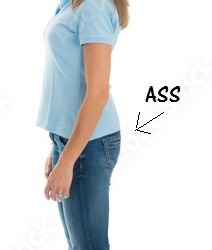



#writblr#writers on tumblr#writing community#writers of tumblr#writing#writing advice#writing tips#procrastination#writer#writers#writers problems#writers block#writing meme#writing memes#writing humor#queue
444 notes
·
View notes
Text
My Tarot readings improved drastically onced I started seeing tarot as a story and conversation, rather than an interview or questions and answers.
Spreads can be super helpful, but I highly reccomend that anyone wanting to improve their tarot readings to do regular free-form readings. Talk to your cards, make the reading a conversation, look to the imagery and find the narrative hidden in the cards.
#queue-tie pie#buriedpentacles#witch#witchcraft#witchblr#witch community#nature#mother nature#pagan#paganism#tarot#tarotblr#tarot tips#tarot cards#tarot deck#tarot witch#tarot reader#tarotcommunity#divination#tarot community
384 notes
·
View notes